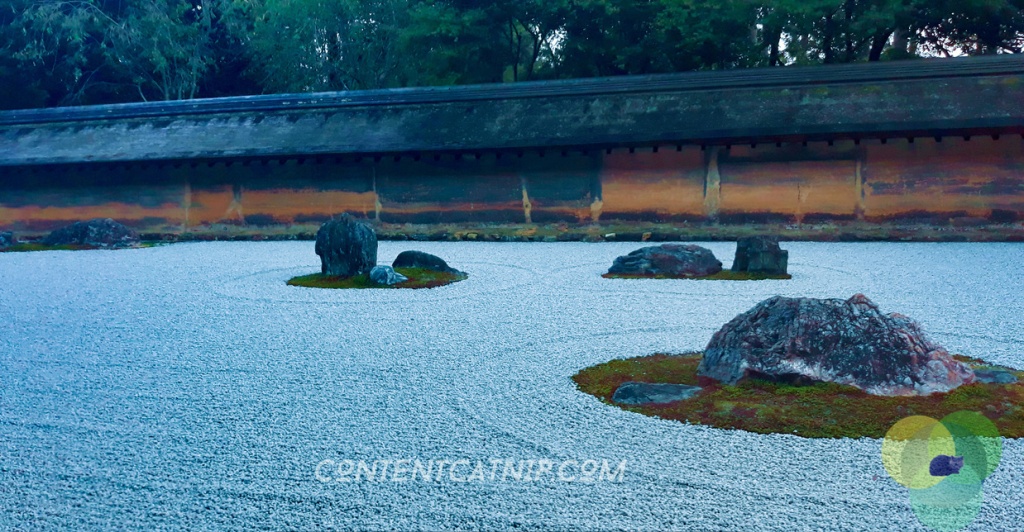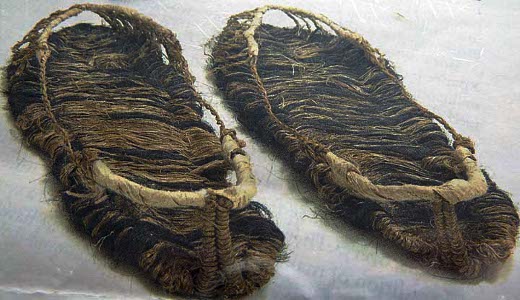Japan has a long history of jisei, or death poems. Jisei is the “farewell poem to life.” These poems were written by literate people, often monks, royalty or courtiers just before their death.
A Jisei from Prince Otsu in 686 BC is one of the earliest recorded death poems.
Not all death poems are written in the well-known haiku format/style. Jisei was also written in kanshi, waka, and haiku styles. Here are some that really speak to me and sound gorgeous.
My whole life long I’ve sharpened my sword
And now, face to face with death
I unsheathe it, and lo-
The blade is broken-
Alas! – Dairin Soto, who died in 1568 aged 89.

Frost on a summer day:
all I leave behind is water
that has washed my brush. –Shutei

Bitter winds of winter
but later, river willow,
open up your buds. –Senryu (1790)

Not even for a moment
do things stand still-witness
color in the trees. –Seiju
Although some jisei poems seem to be dark and foreboding, others are hopeful and have a sense of peace to them. Acceptance is a key tenet of Zen Buddhism. The acceptance of life as it is and the inevitability of death.
Farewell-
I pass as all things do
dew on the grass. –Banzan
Jisei is a way for us, the reader to connect with the poet’s mind as he or she approaches the very end. All life, beauty/ugliness, past/present and life/death reaches a point of non-duality, a oneness.

Holding back the night
with it’s increasing brilliance
the summer moon. –Yoshitoshi.

On a journey, ill;
my dream goes wandering
over withered fields. -Basho.
In Japanese culture, specific types of death are used to reference a person. Death is associated with the kind of life a person lived.
shinju: lover’s suicide
junshi: warrior’s death
senshi: death in war
roshi: death from old age




Getting your last words down to three, or even five lines – that’s quite something!
LikeLike
Yeah it’s remarkable isn’t it, so much meaning packed into a small poem.
LikeLike
Love this. Death should be a central aspect of culture. There is nothing like this in the west which makes death so much tougher to deal with. It should be in the conversation early and often. We should all spend time composing our final poems. My own is a work in progress
LikeLike
Yeah I know…so lovely isn’t it, to think about death in this sort of way, to celebrate it and be melancholy about it, but to accept it fully, yet it’s so difficult in the west to do this, why?
LikeLike
Just never got bedded into the culture I guess. No doubt religion got in the way. It’s hard to sensible and realistic about the end when you think you’ll be riding unicorns in a popcorn factory after you die
LikeLike
Don’t knock my beliefs Jeremy what are you saying..that riding unicorns in a popcorn factory won’t happen? 😢😢
LikeLike
Ummm….it’s somewhat unlikely but not out of the question!
LikeLike
hahaha
LikeLike
Are you doing a Jisei poem? that really is cool if so Jeremy!
LikeLike
Oh no not really. I just meant that the poem (i.e my life) is still a work in progress. I like the idea of doing one
LikeLike
Beautiful! 😁
LikeLike
Did you come across a collection of these poems in print at all? That would be something I’d like to get.
LikeLike
I did in a shop in Tokyo,but I never bought it. I am sorry I can;t recall exactly the name though. I found this one on Amazon and it could be the one https://www.amazon.com/Japanese-Death-Poems-Written-Monks/dp/4805314435
LikeLike
Thanks — this looks like something I should buy. I going to Tokyo in a few weeks, so I’ll have a look when I’m there as well.
LikeLike
How cool…hope you have a good time
LikeLike
Goodness me, that well photo underneath the summer moon poem is quite atmospheric!
LikeLike
Yes it really is poetic isn’t it Terry, glad you liked this post!
LikeLike
This is absolutely beautiful Sophie and also incredibly sad and powerful. I am honoured to share it here. I think you should publish your poems either on a blog or in a book. I am very sad to hear you will be dying, this work is powerful and it deserves a wider audience. It is a struggle to know you are going to die and I hope you have some supportive people around you. Much love and thank you so much for sharing your story.
LikeLike